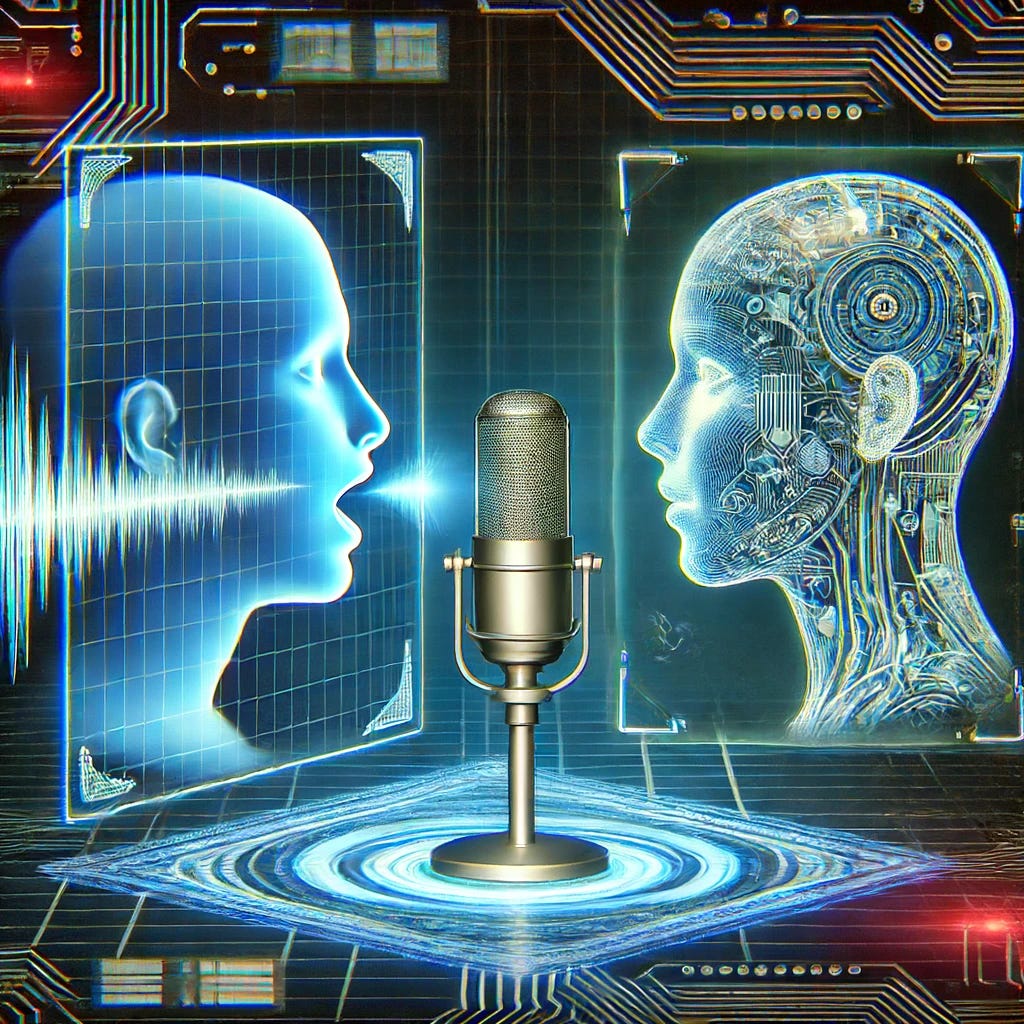AI and Voice Cloning: Scarlett Johansson v. OpenAI Ethical and Legal Implications
Scarlett Johansson's controversy with OpenAI is an ethical issue marketers should take note of.
With AI advancements reshaping the digital age, the intersection of marketing, ethics, and AI continues to grow in importance. Scarlett Johansson's recent incident with OpenAI illustrates some of these evolving technologies' many challenges and responsibilities.
This week, we welcome
, an award-winning cybersecurity and privacy expert and founder of the Cyber Law Firm. She joins our team as Legal Editor, where she will share her AI legal ethics expertise in this and subsequent issues.Voice Cloning
AI has been used for voice cloning for a while now. Even before ChatGPT, we cybersecurity nerds were aware of the issues of using AI to clone voices. Individuals would pick up the phone, and cybercriminals would record their voices to gather data needed to clone their voices.
Using the AI voice clone of the target, these criminals would call vulnerable elderly individuals in the target's family, claiming that the AI clone was a hostage, to scam them. Today, AI and voice cloning are still used for scams, but other exciting issues have arisen.
The Scarlett Johansson AI Incident
Scarlett Johansson recently found herself at the center of a “Black Mirror” type controversy with OpenAI. OpenAI approached Johansson about using her voice for ChatGPT. Johansson claimed that she had declined this request last year. Even though she refused, ChatGPT's new model had a voice that sounded just like hers.
Upon learning about this, Johansson posted on social media, and it is unclear if she will take legal action now that the voice has been removed from their platform. Privacy law issues arise since individuals have a right to control who uses and profits from their name and likeness.
This is especially relevant in the age of AI and deepfake technologies. It would be very transformative within the industry if a case were brought forward. These new and emerging technologies create a variety of unexpected harms and ethical concerns that still need legislation or case law.
The AI Marketing Ethical Dilemma
This incident raises ethical concerns about AI and marketing. A major concern is AI's potential to invade privacy and IP rights. With AI capable of replicating voices and images with such accuracy, the individuals' consent is essential. Marketing, advertisement, and entertainment industries should also be considered.
Yes, AI can streamline processes and achieve goals we never dreamed of. On the other hand, AI can also pose a risk to writers and actors if we allow actors not to get paid for their likeness and instead allow AI to replicate it without recourse. AI must evolve while respecting the irreplaceable nature of artists and creators, their rights, and their privacy.
Consent and Authorization: Companies should obtain explicit consent from individuals before incorporating their voice, image, creation, or likeness into AI models. This upholds ethical standards in AI development and respects individual rights. As AI and the law continue to evolve, there should always be a "better safe than sorry" approach.
Transparency: Being transparent about how companies use AI technologies and collect data is essential. Tell users how you collect, store, and use their data. Also, let them know what data you collect, how you use it, and how you may use some to train AI models. Give users the option to opt-out. Transparency builds trust with the public and ensures that individuals are aware of how you might use their likeness.
Accountability: Address misuse of AI technologies with clear accountability mechanisms. While privacy and publicity laws provide a necessary check against abuse, there is always room for improvement. Also, consider ethics. If the law does not explicitly cover something, that doesn't mean it will always be legal, ethical, or keep you out of trouble.
Legal Implications: This incident highlights the need for robust legal frameworks to keep up with technological advancements. Johansson's case emphasizes the importance of privacy and protecting individuals from identity exploitation for advertisement and profit.
Using AI to mimic a person's voice or image can raise intellectual property issues. The development and use of AI must respect individuals' intellectual property rights.
Marketing’s Role
From a marketing perspective, using AI to replicate celebrity voices or likenesses can be highly appealing and a huge cost-saver. However, you must do this ethically and legally.
Marketers must consider legal risks and ethical considerations before using AI-generated content. Celebrities are human beings with privacy rights. Public visibility doesn't allow companies or marketers free reign to use individuals' names or likenesses without their consent.
When using AI-generated likenesses of individuals, marketers should prioritize ethics by ensuring all necessary permissions are obtained. Building and maintaining consumer trust is essential. Unjust practices can lead to backlash and legal consequences, while ethical practices can enhance brand reputation and customer loyalty.
Lessons From This Case
Using AI technologies comes with ethical and legal responsibilities, as illustrated by the Scarlett Johansson and OpenAI incident. To foster innovation and protect individual rights, developers, marketers, and legal professionals must collaborate to create frameworks that maintain individual rights within the digital age.
For more insights into AI and deepfake technologies, you can explore detailed articles on the legalities of AI and Deepfakes, how AI can contribute to misinformation, and remedies for deepfake victims.
It is imperative to address these challenges head-on if we want AI to develop in a way that is both innovative and ethical, ensuring our personal freedoms and rights are protected rather than being compromised.
What’s your take on the Scarlett Johansson/OpenAI issue? Share your thoughts by leaving a comment or asking Star a question.
This Week in AI Marketing Ethics
This week, we focus on AI ethics and its legal implications.
NJ Attys Flag Ethics Concerns, Lack Of Training With AI (Law360)
AI Ethics Complications Are Reach a Fever Pitch (Android Police)
AI, Copyright, and Fair Use: What You Need to Know (TechTarget)
The Legal Implications of Generative AI (Deloitte)
How Should Business Implement AI Toold Legally (National Law Review)








The issue of infringement will always accompany AI, as the problems that arise now are supervised by social media, without any automatic detection function.